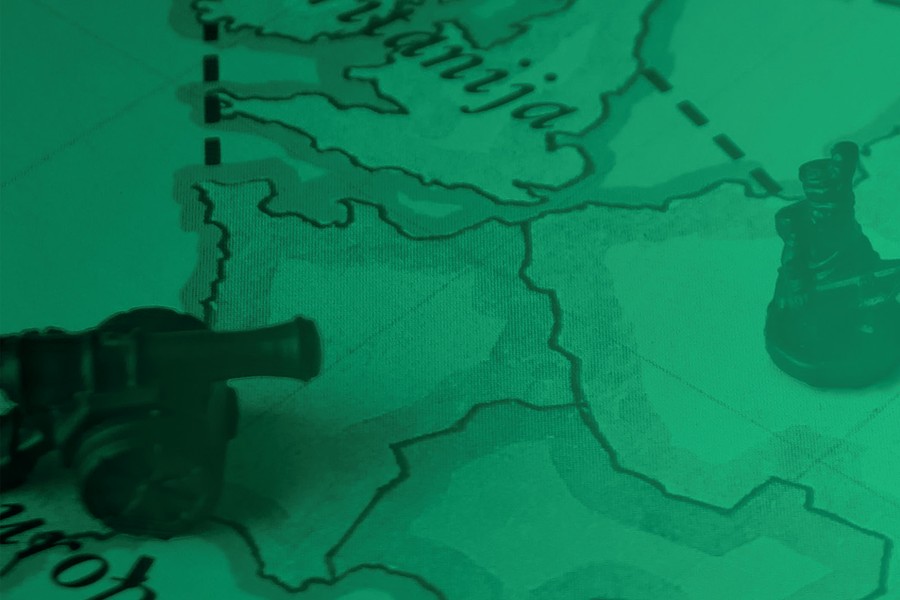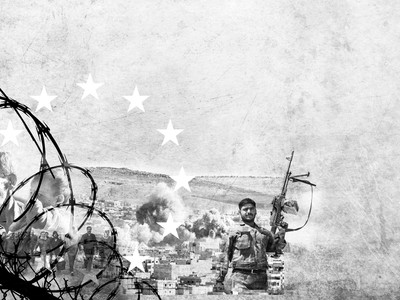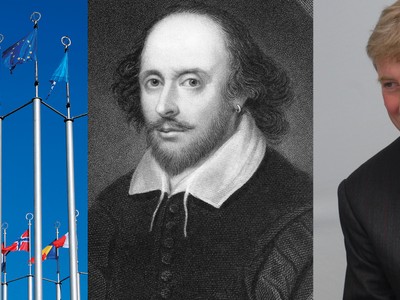This should not be a major surprise to us since the West used exactly these ‘hybrid’ methods from Cuba via Iran to the Philippines to subvert governments throughout the Cold War. But Russia’s resentful kleptocrat secret policemen are not our only problem. Europe faces a major internal threat from Islamist terrorism, edging nearer now that ISIS has relocated fighters from Syria and Iraq to Libya, about 120 miles south of Lampedusa.
Many of the 3,000 ISIS fighters are recruited from the adjacent Sahel states or sub-Saharan Africa where Nigeria’s Boko Haram is affiliated with ISIS. Across Africa, thanks to proselytism by Saudi Arabia’s Islamic University of Medina, a benign Sufism that incorporated traditional animist beliefs and which joshed along with Christians, has been supplanted by hard core Wahhabism, from which it is a small leap to violent jihadism. Sub-Saharan Africa’s Muslim population of 250 million is projected to grow by 60% in the next three decades, and if Islamist-inspired war zones proliferate, many of them will seek to come to Europe.
France is the most active power, with ground interventions in Mali and the Central African Republic, as well as a ferocious bombardment of ISIS in Syria.
In this bleak world, Europeans should not assume that the US Cavalry will ride to their rescue. Failed foreign wars, a growing non-European demographic, and a long-term strategic decision to ‘pivot’ towards Asia-Pacific to prevent Chinese domination, mean that regardless of who is in the White House after November, US attention has migrated elsewhere.
A US military, whose much reduced budget of $580 billion is equivalent to that of the next fifteen largest nations combined, will indeed still respond to invocations of NATO’s Article 5, up to and including use of the nuclear deterrent. But America expects Europe to get serious about defence expenditure (only Britain and Greece currently meet the 2% of GDP decennial aspiration proclaimed in 2014 at the Newport Summit), and to derive a proper bang for its buck. While the US can deploy 200,000 troops from the 1.1 million total under arms, Europe’s 1.5 million uniformed personnel can only muster 60,000 for expeditionary operations, and as we saw in Libya in 2011, they would depend on US surveillance flights, air-to-air refuelling and stocks of precision munitions.
Although the freedom of Europe remains a vital US interest, Washington expects its European allies to either defuse or deal with security crises, not just on their immediate peripheries (from the Balkans to North Africa) but on the peripheries of the peripheries. Potentially this means deep Africa as well as the Gulf or Caucasus. France is the most active power, with ground interventions in Mali (2013) and the Central African Republic (2014), as well as a ferocious bombardment of ISIS in Syria.
For years, Europe has also taken the lead in Operation Atalanta against Somali pirates. But these operations do not indicate the actual and potential scale of European defence cooperation, routinely travestied in Britain via Jean-Claude Juncker’s daydream of a “European Army”, odd coming from the former PM of a country that has no national strategy document.
Not all our European partners regard NATO as a good-fit Finland, Ireland and Sweden come to mind. It was the UK and France which pushed through the 1998 EU Common Security and Defence Policy to help devise a coherent EU grand strategy, even though the UK subsequently cooled on the project, opting instead for closer ties with the robust French.
Likewise, there is a European Defence Agency, whose purpose is to develop costly projects like drones, heavy lift and air refueling tankers, which declining national defence budgets no longer make cost effective for ‘national champion’ defence contractors. Tie-ups between Dassault, EADS and Finmeccanica will produce the Euro drone, while France’s Nexter and Germany’s Krauss-Maffei-Wegman will synthesize the best features of their rival tanks.
There is a European Defence Agency, whose purpose is to develop costly projects like drones, heavy lift and air refueling tankers, which declining national defence budgets no longer make cost effective for ‘national champion’ defence contractors.
But more is afoot than eliminating the proverbial corrupt inefficiencies in this sector. European nations adopted a NATO proposal called the Framework Nations Concept. Smaller countries cluster around Germany (logistics), Britain (high intensity expeditions) and Italy (stabilization and reconstruction). In addition, the Belgian and Dutch navies have virtually merged, while the Dutch and German armies have a common Corps based at Münster. As in the case of all such initiatives, this is complementary rather than competitive with NATO, and in reality is at its disposition in a crisis. While NATO will endure as the ultimate safeguard of our security, something resembling the polyglot armed coalitions of the 18th century are having a comeback.
The British always stress the paramountcy of their “Five Eyes” signals intelligence alliance with the US, Canada, Australia and New Zealand. Sometimes there is talk of this evolving into 6, 9 or 14 eyes, but the US’s National Security Agency’s refusal not to spy on, say, France or Germany, has proved an obstacle. While the cooperation of Canberra’s finest was doubtless vital to spying on North Vietnam, it is far from certain whether it is helpful in knowing what jihadists in Amsterdam, Brussels or Milan are plotting. The first director of the recently re-launched Europol, which gathers information on organized crime and terrorism is Robert Wainwright, a British former MI5 intelligence analyst.
NATO will continue as the ultimate guarantor of our security, and will organize many military operations, but forget the dim witted clichés about Italians being cowards and hippy Dutch troops who say “Hoi’ without a salute (in reality it is the fearsome Germans who are most loath to fly at night and whose equipment is falling apart) and get used to us fighting alongside our 27 EU partners.
Michael Burleigh
CEO, Sea Change Partners LLP



